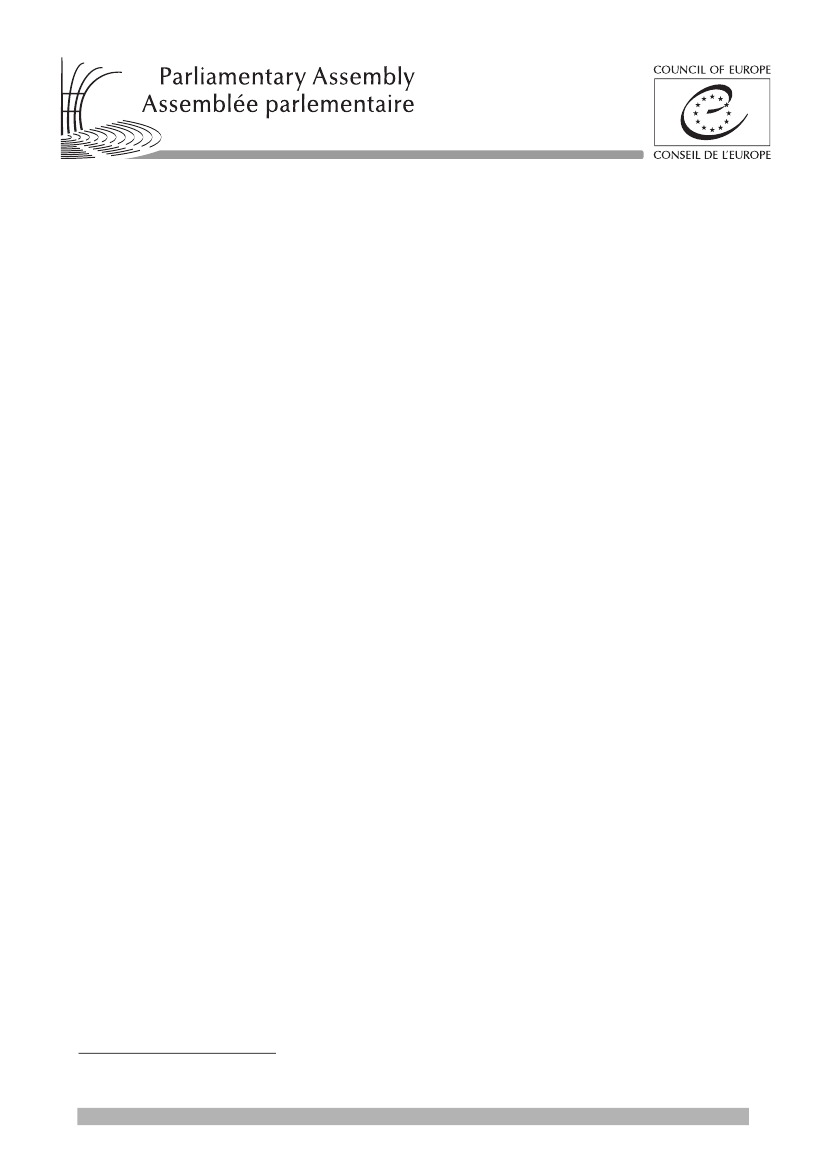
http://assembly.coe.int
Doc. 13870
14 September 2015
Equality and shared parental responsibility: the role of fathers
Report
1
Committee on Equality and Non-Discrimination
Rapporteur: Ms Françoise HETTO-GAASCH, Luxembourg, Group of the European People's Party
Summary
In Europe, there have been striking changes in the ways in which responsibilities are shared between women
and men within families, and notably a shift towards a more even balance. However, laws, practices and
gender stereotypes about the roles of women and men can sometimes cause fathers to be deprived of
sustained relationships with their children. For a parent and child, the ability to be together is an essential part
of family life, which is protected by the European Convention on Human Rights. Parent–child separation should
only be ordered by a court and only in exceptional circumstances entailing grave risks to the interest of the
child.
Child residence and access rights can prove particularly sensitive and may become a source of conflict when
parents separate. States are called upon to introduce or, as appropriate, to make greater use of shared
residence arrangements, which are often the best way to preserve contact between children and their parents.
However, shared residence must be used discerningly, and always bearing in mind the interests of the child.
Enforcement of residence and access decisions must also be better ensured by the States.
Greater use should be made of family mediation and equal rights of parents should be ensured, regardless of
their marital status. Lastly, it is recalled that while parents certainly have rights, they first and foremost have
duties and responsibilities towards their children.
1.
Reference to committee:
Doc. 13443,
Reference 4039 of 11 April 2014.
F - 67075 Strasbourg Cedex
|
|
Tel: +33 3 88 41 2000
|
Fax: +33 3 88 41 2733